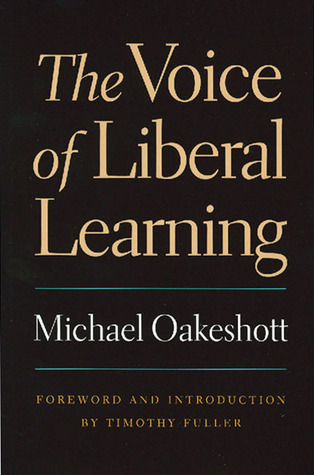For a conservative, no engagement can be more important than edu cation. A conservative is one who distinguishes his outlook from others—socialist and liberal, for example—by his concern, not with the standpoint of here and now, but with the perspective of those who have come before us and those as yet unborn. Where liberalism and socialism are one-generation philosophies, which treat human beings as if they sprang from nowhere, essentially unconnected with their ancestors or their offspring, the conservative builds his outlook on the primordial fact that, among human beings, the generations overlap. More, he recognizes that it is only through the difficult engagement of education that we renew our identities in our children, and give ourselves an indefinite lifespan in future generations, each of which has nevertheless its own individuality. Much the most important part of education occurs before a child ever goes to school—in the family. But we will fail to reproduce ourselves as inheritors of a distinctive cultural tradition if our schools and universities have become hostile to the civilization that gave them birth. To abandon the schools and the universities as lost to civilized discourse, and to retreat (as into a last redoubt) into the family, is a counsel of despair-one that may be well-founded in contemporary circumstances, but which is nevertheless defeatist.
Precisely because it is the most important of all engagements for a conservative, education has been the most systematically corrupted by latter-day enemies of tradition, excellence, and liberty. It is, then, of the utmost interest when the most profound, and certainly the least well-understood of 20th century conservative thinkers addresses himself, in this timely collection of essays, to the question of the character of an institution of education in a civilization such as ours. Whereas Oakeshott fully apprehends the gravity of the educational situation, he abjures the febrile rhetoric of crisis and catastrophe that bedevils much current conservative discourse on education. Nothing could be further from Oakeshott’ s skeptical yet impassioned defense of liberal education than Allan Bloom’s doom laden prognostications-the best corroboration of which is, perhaps, to be found in his book’s American reception. Yet Oakeshott shares with Bloom the perception that there is something badly awry in contemporary education, and especially in the universities. What is it that we have lost, or are in danger of losing?
According to Oakeshott, all education is, first if not last, an invitation into a culture. He tells us that a “culture comprises unfinished intellectual and emotional journeyings, expeditions now abandoned but known to us in the tattered maps left behind by the explorers; it is composed of lighthearted ad ventures, of relationships invented and explored in exploit or in drama, of myths and stories and poems expressing fragments of human self-understand ing, of gods worshiped, of responses to the mutability of the world, and of encounters with death.” Our culture, he notes, “accommodates not only the lyre of Apollo but also the Pipes of Pan, the call of the wild; not only the poet but also the physicist; not only the majestic metropolis of Augustinian theology but also the ‘greenwood’ of Francescan Christianity.” This is the culture we receive, as a gift, from our forbears, and without it we are nothing. For, as Oakeshott affirms decisively, “A man’s culture is an historic contingency, but since it is all he has he would be foolish to ignore it because it is not composed of eternal verities.”
In the six essays (written or published between 1949 and 1975) that make up this volume, Oakeshott offers a characterization of education as an engagement in which a culture is transmitted across the generations in a place of learning that is distanced from practical concerns, from the topical and the political, and which seeks to propagate no particular doctrine. If a liberal education has an end or telos, it is the generation in its pupils of conversability, as “an education in imagination, an initiation into the art of [a] conversation in which we learn to recognize [its] voices; to distinguish their different modes of utterance, to acquire the intellectual and moral habits appropriate to this conversational relationship and thus to make our debut dans la vie humaine.” For Oakeshott, then, a place of learning-a school or a university—is a place apart. It is not a seminary for the production of believers, nor a factory for the manufacture of skills. It is a place where young people may, for a while, be released from the tyranny of purpose, and in that interim acquire the dispositions and character of civilized human beings.
It is obvious that, among us, places of learning rarely have the character Oakeshott ascribes to them. If in Britain they are being conscripted into the service of industry and characterized in the philistine, Benthamic jargon of productivity and social utility, in the United States universities have become arenas of intellectual gang warfare, dominated by shifting coalitions in a warring mafia of feminists, deconstructionists, and the detritus of the 60’s. On both sides of the Atlantic, the vision of liberal learning that Oakeshott celebrates-one that I was privileged to see embodied in practice, in the grammar schools and Oxford colleges (where it still endures) of England a quarter of a century ago-will appear, to most of the academic class, not so much reactionary as unintelligible. It will be one of the supreme ironies of our century if, in the intellectual environment created by the Soviet glasnost, and in the uncorrupted universities and gymnasia of post communist Eastern Europe, we wit ness a renaissance of liberal education, while in the West places of learning are conquered by ideologues or fall into disrepair.
[The Voice of Liberal Learning, by Michael Oakeshott (New Haven and London: Yale University Press) 176 pp., $20.00]

Leave a Reply